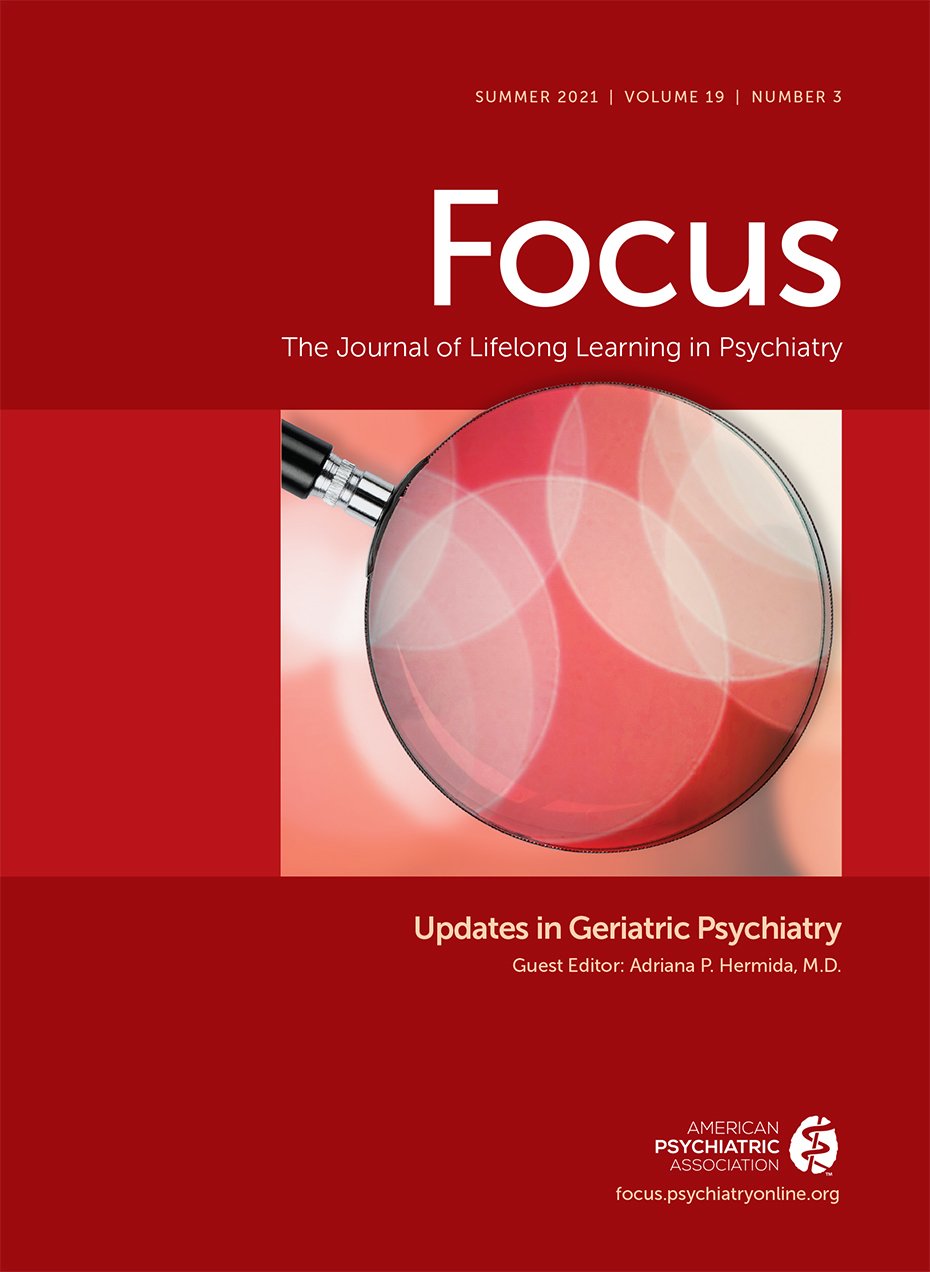Palliative Care: Critical Concepts for the Geropsychiatrist
Abstract
Psychiatrists can make a significant contribution to improving quality end-of-life care for psychiatric patients, beyond managing their psychiatric and psychological conditions. Geriatric psychiatrists can build expertise in enhancing end-of-life care when caring for older adults with serious illnesses and their families, given the biopsychosociospiritual approach that significantly overlaps with palliative and hospice care approaches. To effectively add quality to end-of-life care, it is essential for psychiatrists to understand the core principles and practices of palliative and hospice care, learn basic symptom management skills, and hone the ability to have crucial conversations regarding prognosis and advance care planning. Also important is recognizing when to refer to hospice and palliative medicine subspecialists. This article provides an overview of palliative and hospice care, uses a case study to illustrate components of palliative and hospice care relevant to geriatric psychiatry practice, and comments on considerations pertinent to the coronavirus disease 2019 (COVID-19) pandemic.



